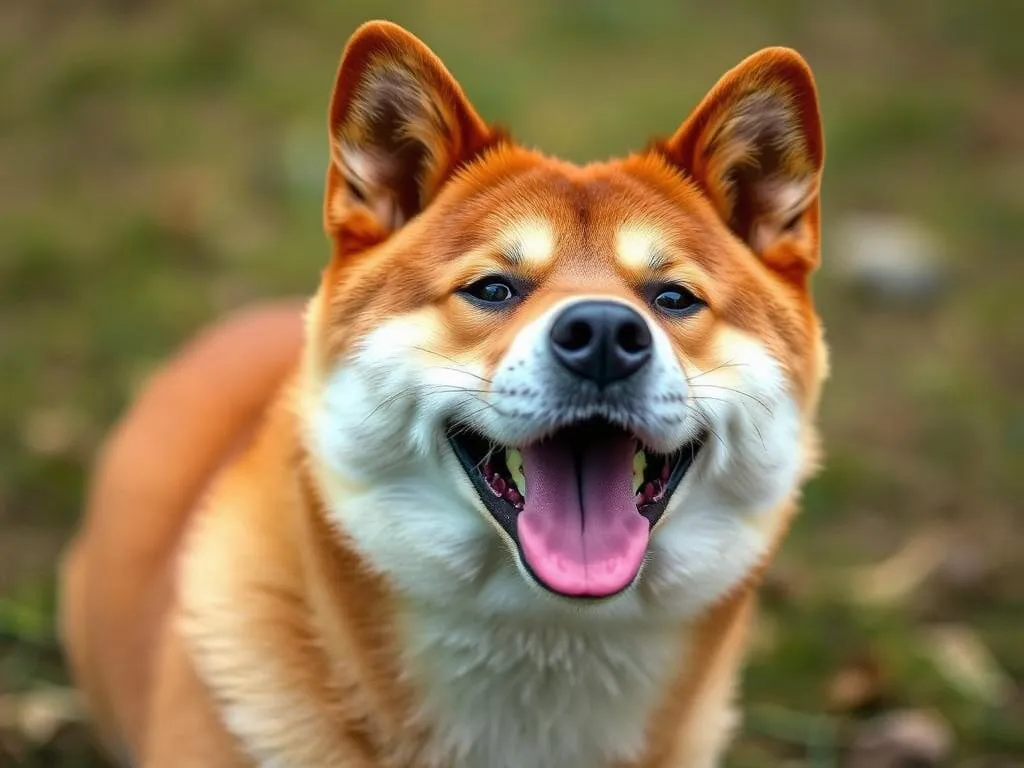
Introduction
The Shiba Inu is a small to medium-sized dog breed that originates from Japan. Known for their fox-like appearance, spirited personality, and charming antics, Shiba Inus have gained immense popularity worldwide. Their distinctive curled tails, erect ears, and alert expressions make them instantly recognizable. With their spirited yet independent nature, these dogs are often described as having a cat-like demeanor, which adds to their unique charm.
Understanding the barking behavior of a Shiba Inu is crucial for potential owners. While these dogs are known to be relatively quiet compared to other breeds, their barking habits can vary significantly based on several factors. For those considering bringing a Shiba Inu into their home, knowing how much they bark and what influences this behavior can help ensure a harmonious living environment.
Understanding Barking Behavior in Dogs
Why Dogs Bark
Barking is one of the primary communication methods for dogs. It serves various purposes, from alerting their owners to potential threats to expressing excitement or boredom. Dogs are naturally inclined to bark due to their instinctual behaviors, which have been honed over thousands of years of domestication.
In the wild, dogs used barking to communicate with their pack members, alert others of danger, or signal their presence. Today, domesticated dogs, including Shiba Inus, continue to use barking as a form of communication, albeit in different contexts.
Factors Influencing Barking
Several factors can influence a dog’s barking behavior.
-
Breed Characteristics: Some breeds are more vocal than others. Shiba Inus, for instance, are known for their unique vocalizations but are generally not as prone to excessive barking as some other breeds.
-
Environment and Socialization: A dog’s environment plays a significant role in its barking habits. A well-socialized Shiba Inu in a calm environment may bark less than one that is frequently exposed to loud noises or unfamiliar situations.
-
Emotional Triggers: Dogs can bark due to various emotional triggers such as anxiety, excitement, or stress. Understanding these triggers is essential for managing barking behavior.
Shiba Inu Barking Traits
Typical Barking Patterns
When considering how much a Shiba Inu barks, it’s essential to note that these dogs typically bark less than many other breeds. On average, a Shiba Inu may bark occasionally to alert their owner to something unusual or when they are excited. It’s not uncommon for them to bark a few times a day, but this can vary widely depending on the individual dog’s personality and environment.
In comparison to other breeds, such as Beagles or Terriers, Shiba Inus are relatively quiet. However, they do have their moments of vocalization, particularly when they feel it is necessary to communicate something important.
Types of Barks
Shiba Inus exhibit different types of barks, each serving a distinct purpose.
-
Alerting Bark: This is a sharp, quick bark that indicates something unusual is happening, such as a stranger approaching the house.
-
Playful Bark: When engaging in play, a Shiba Inu may bark in a higher pitch, signaling joy and excitement.
-
Anxious Bark: An anxious or distressed Shiba Inu may produce a series of quick barks, often accompanied by whining.
In addition to barking, Shiba Inus are known for other vocalizations, such as whining or howling, which can signal different emotions or desires.
Reasons Shiba Inus Bark
Warning and Alerting
Shiba Inus are inherently protective, and their barking often serves as a warning signal. They have a strong guarding instinct, making them excellent watchdogs. When they perceive a threat or notice something unusual in their environment, they are likely to bark to alert their owners. This behavior is rooted in their ancestry, where they were bred to hunt small game and protect their territory.
Attention-Seeking
Sometimes, a Shiba Inu may bark simply to get attention. If your Shiba Inu feels bored or neglected, barking can be a way to communicate their desire for interaction. This behavior is especially common in younger dogs or those not given enough mental stimulation or physical activity.
Social Interaction
Barking is also a form of communication with other dogs and humans. A Shiba Inu may bark at other dogs during walks or playtime as a way to engage and socialize. Similarly, they may bark at their owners to initiate play or get a response.
Response to Stimuli
Shiba Inus are alert and responsive to their surroundings. They may bark in reaction to various stimuli, such as other animals, loud noises, or even sudden movements. This heightened awareness can lead to more frequent barking in certain situations, especially if the dog feels uneasy or curious.
How to Manage Shiba Inu Barking
Understanding Your Dog’s Needs
Managing a Shiba Inu’s barking begins with understanding their needs and identifying the triggers for excessive barking. Observing your dog’s behavior and recognizing patterns can provide insights into what may be causing them to bark more than usual.
Providing adequate mental and physical stimulation is crucial. Shiba Inus are intelligent and active dogs that require regular exercise and enrichment activities to keep them engaged. Boredom can lead to increased barking, so ensuring your dog has various activities, such as walks, playtime, and puzzle toys, can significantly reduce barking incidents.
Training Techniques
Implementing effective training techniques can help manage a Shiba Inu’s barking behavior. Positive reinforcement is one of the most effective methods. Instead of punishing your dog for barking, reward them when they remain quiet in situations that typically trigger barking.
Teaching commands such as “quiet” or “enough” can also be beneficial. When your Shiba Inu starts barking, calmly use the command and reward them when they stop barking. Consistency is key, so ensure that all family members use the same commands and methods.
Creating a Calm Environment
A calm environment can significantly reduce unnecessary barking. Minimize potential triggers by creating a quiet space where your Shiba Inu can relax. Use curtains or blinds to block outside distractions, and consider using white noise machines or calming music to reduce environmental stimuli.
Establishing a routine can also help your dog feel more secure. Regular feeding, exercise, and playtime schedules can instill a sense of structure, reducing anxiety and, consequently, barking.
Health Considerations Related to Barking
Barking as an Indicator of Issues
While barking is a natural behavior for dogs, it can sometimes indicate underlying health problems. If your Shiba Inu begins to bark excessively or displays changes in their barking patterns, it may be a sign of discomfort or pain. Observing other signs of distress, such as changes in appetite, lethargy, or unusual behavior, is essential.
Seeking Professional Help
If you find that your Shiba Inu’s barking is becoming unmanageable or is accompanied by other concerning behaviors, seeking professional help is advisable. A veterinarian can rule out any health issues that may be causing the barking, while a professional dog trainer can provide guidance on effective training methods and behavioral management strategies.
Early intervention is crucial to address any potential issues before they escalate. The sooner you can identify the cause of excessive barking, the better the outcome for both you and your dog.
Personal Experiences and Anecdotes
Owner Testimonials
Many Shiba Inu owners have shared their experiences regarding barking behavior. Some owners report that their Shiba Inus bark primarily to alert them to potential threats, while others note that their dogs bark out of excitement during playtime. One owner mentioned, “My Shiba Inu barks whenever he sees a squirrel in the yard, but he rarely barks indoors unless someone is at the door.” This highlights the varied barking behaviors that can exist within the breed.
Expert Opinions
Veterinarians and dog trainers emphasize the importance of understanding the reasons behind a Shiba Inu’s barking. According to one dog trainer, “Recognizing barking as a form of communication is key. Instead of viewing it as a nuisance, we should try to understand what the dog is trying to tell us.”
Experts recommend focusing on training and providing mental and physical stimulation to reduce excessive barking. They also stress the importance of socializing Shiba Inus from an early age to help them feel more comfortable in various situations, which can ultimately reduce their need to bark.
Conclusion
In summary, the question of how much a Shiba Inu barks can vary greatly depending on the individual dog’s temperament and environment. While they are generally not known for excessive barking, understanding their communication needs is vital for any potential owner.
Recognizing the reasons behind barking, implementing effective training techniques, and providing a nurturing environment can help manage barking behavior effectively. As responsible pet owners, it is essential to engage with our dogs, understand their communication methods, and create a harmonious living environment for both humans and pets.









